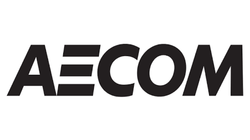Water crisis likely to be worse than the energy crisis, says AECOM
Despite the issues being faced in the power sector, Green says that the work coming from it remains cyclical and difficult to secure. This is especially true on the high-voltage transmission and distribution side, and even in the renewable energy sector, where despite a renewed focus there is not a consistent flow of work.
AECOM’s involvement here mainly extends to photovoltaic systems for buildings, for example. “Of course, we have the necessary capability globally, but trying to bring that into the African market with all of the procurement issues we are facing is difficult,” highlights Green. At a higher government policy level, energy also touches on sustainability, which AECOM embraces with its comprehensive Sustainable Legacies approach.
Climate change and resilience advisory services are an increasingly important part of this strategy globally. However, the approach in South Africa tends to remain reactive, as demonstrated by the recent flooding in KwaZulu-Natal. The question is how to futureproof infrastructure to mitigate the impact of such unforeseen events.
“Clients are not perceiving this as a priority. It must start with an overall understanding of sustainability and its key drivers. The South African market has not reached a sufficient level of maturity in this regard,” says Green, adding it is being equally hampered by a lack of future planning and modelling.
For example, integrated hydrological models of South Africa’s coastlines are not being maintained or updated. Such modelling is critical not only to map out the available water resources, but to determine the potential runoff. “That determines the input into the design for various types of infrastructure,” notes Green.
If it is known how many cubic metres a second a river discharges into an area, and based on historical rainfall data, changing patterns can be determined and future anticipated runoff predicted and planned for. However, what tends to happen is small-scale modelling is applied for individual developments, which often relies heavily on the consultant’s experience.
A lack of holistic or integrated planning means that any upstream developments will be affected by concentrated or uncontrolled runoff from elsewhere. Downstream infrastructure and properties simply cannot cope with that capacity, resulting in a snowball effect.
“It is not so much that there is a lack of development policy or controls, but these are not enforced,” points out Green. While integrated planning is critical for stormwater, it applies to all infrastructure. In terms of electricity, integrated planning is not only essential to understand future supply and demand, but also how to maintain the existing supply. Transitioning to renewable energy sources is a means of futureproofing, but it must be bolstered with adequate policy support. “We have to be at the level where we can design infrastructure with a proper understanding of all of these inputs,” says Green.
“Lifecycle costing optimisation needs to happen as part of this futureproofing. Another issue is that maintenance is not being carried out. Even if you design something the way it should be for resilience and futureproofing, a maintenance regime must be put in place.” A simple example is ensuring stormwater drains remain clear. If these become blocked, it potentially changes the runoff pattern and can have a major impact on infrastructure elsewhere. “The mantra of ‘maintenance, maintenance, maintenance’ sounds very simple, but it is not being done,” concludes Green.
Pull quote
“The energy crisis is confronting us first or maybe it is the most obvious, but for me the current water shortage in Gauteng is absolutely a worse crisis.” – Darrin Green, MD: Africa, AECOM
Social media
Climate change and resilience advisory services are an increasingly important part of this strategy globally. However, the approach in South Africa tends to remain reactive, as demonstrated by the recent flooding in KwaZulu-Natal. The question is how to futureproof infrastructure to mitigate the impact of such unforeseen events. #AECOM #SustainableLegacies
Ends
Notes to the editor
To download hi-res images for this news article, please visit http://media.ngage.co.za and click on the AECOM link to view the company’s press office.
About AECOM
AECOM is the world’s trusted infrastructure consulting firm, delivering professional services throughout the project lifecycle – from planning, design and engineering to program and construction management. On projects spanning transportation, buildings, water, new energy and the environment, our public- and private-sector clients trust us to solve their most complex challenges. Our teams are driven by a common purpose to deliver a better world through our unrivalled technical expertise and innovation, a culture of equity, diversity and inclusion, and a commitment to environmental, social and governance priorities. AECOM is a Fortune 500 firm and its Professional Services business had revenue of $13.3 billion in fiscal year 2021. See how we are delivering sustainable legacies for generations to come at aecom.com and @AECOM.
AECOM Contact
Lucy McLane
Communications Manager, Strategy & Growth, Middle East & Africa
Phone: +971-58-575-6364
Email: lucy [dot] mclane [at] aecom [dot] com
Website: www.aecom.com
Media Contact
Rachel Megkwe
Senior Account Executive
NGAGE Public Relations
Phone: (011) 867-7763
Fax: 074 212 1422
Cell: 082 562 5088
Email: rachel [at] ngage [dot] co [dot] za
Web: www.ngage.co.za
Browse the NGAGE Media Zone for more client news articles and photographs at http://media.ngage.co.za

